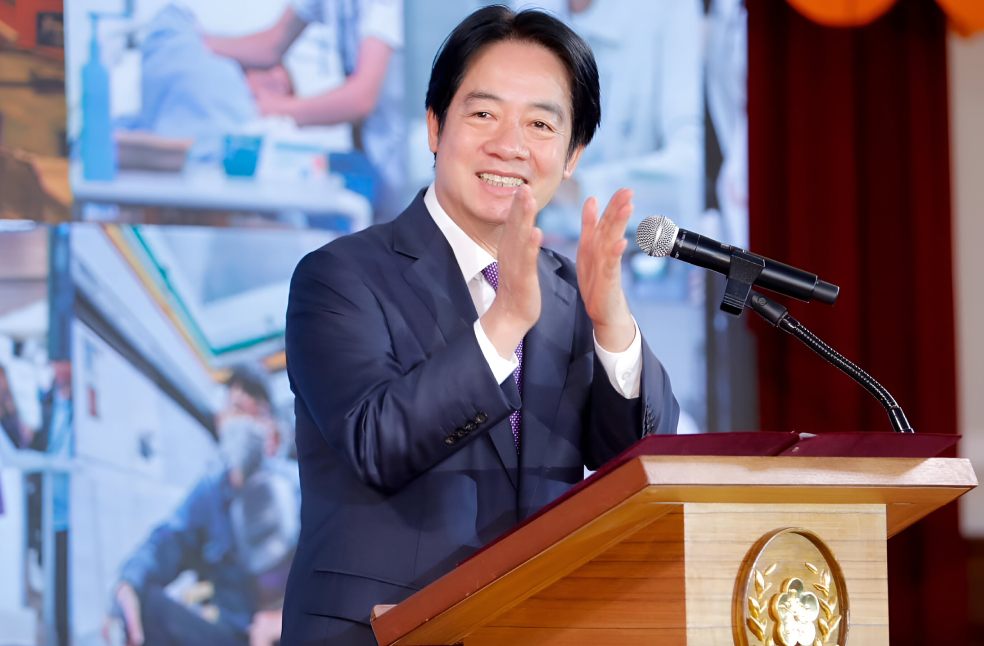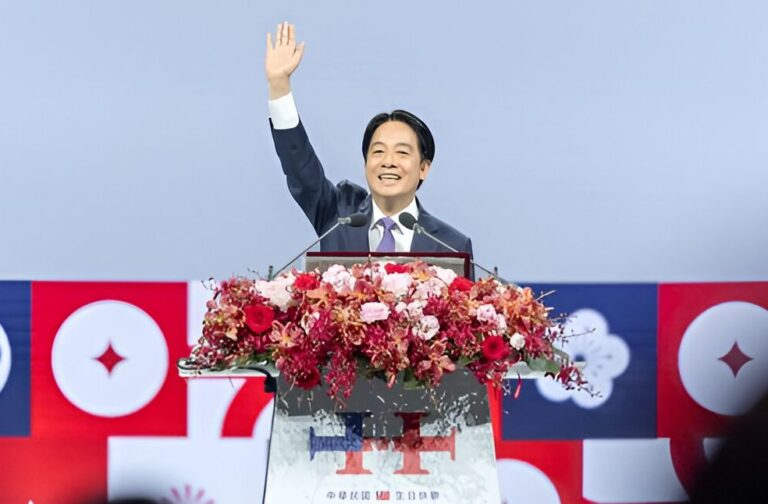Taiwan: Taiwan’s President William Lai has reaffirmed the island’s self-governing status, emphasising his commitment to resisting any attempts at annexation by China. On Taiwan’s National Day speech, Lai stated that, he would support Taiwan’s sovereignty while aspiring to maintain peace across the Taiwan Strait.
In a thinly veiled reference to China’s territorial claims over Taiwan, Lai stated that, “We will support the commitment to oppose annexation or encroachment upon our sovereignty.” Lai emphasised the importance of maintaining “the status quo of peace and stability” between Taiwan and China, while representing a willingness to collaborate with Beijing on pressing global issues such as climate change and battling infectious diseases.
Lai’s talk drew a clear recognition between the governments of Taipei and Beijing. Lai stated that, “The Republic of China and the People’s Republic of China are not subordinated to each other. The People’s Republic of China has no right to represent Taiwan.”
While the speech connected to diplomatic tensions, Lai desired to comfort the international community that there would be “no surprises” in his remarks. His measured tone counters with more provocative comments made earlier this year, encouraging observers to note a shift in rhetoric. Lev Nachman, a political scientist at National Taiwan University, described the speech as “softer” and giving China “far less ammunition” to escalate tensions.
Beijing’s expected response
Despite Lai’s moderated tone, critics anticipate a strong response from Beijing, likely in the form of increased military drills. Beijing has consistently criticised Lai’s pro-independence stance, and its Taiwan Affairs Office reacted swiftly, accusing Lai of “escalating hostility and confrontation” with “sinister intentions.”
China’s government restated its claim over Taiwan, dismissing Lai’s comments as a paraphrase of what it called “old wine in a new bottle.” Tensions between the two governments have intensified, particularly in light of Lai’s previous remarks dismissing China’s historical claims and questioning Beijing’s motivations behind its territorial ambitions.
Taiwan is already independent
In his address, Lai supported his administration’s position on Taiwan’s sovereignty, asserting that there is no need for the island to declare formal independence because it is already an independent entity. He maintained that Taiwan, governed by the constitution of the Republic of China since 1911, has never been under the control of the People’s Republic of China.

Lai’s remarks pursue months of heightened tensions, with Beijing accusing him of deliberately escalating the confrontation. Nonetheless, the Taiwanese leader emphasise maintaining the current status quo, a stance aligned with his predecessor, Tsai Ing-wen, despite Lai’s generally more assertive approach.
Focus on domestic challenges
Lai’s National Day speech was not solely focused on Taiwan’s external relations. The president also managed a range of pressing domestic issues, including energy policies, climate change, and housing, signalling his administration’s commitment to tackling the challenges facing Taiwan internally.
As Taiwan celebrates its National Day with increasing pressure from Beijing, Lai’s address underscored his administration’s balancing act—asserting sovereignty while seeking to avoid further escalation. The days ahead will likely bring increased scrutiny of Taiwan’s political moves, as both Lai’s administration and Beijing navigate the complex and contentious issue of cross-strait relations.



